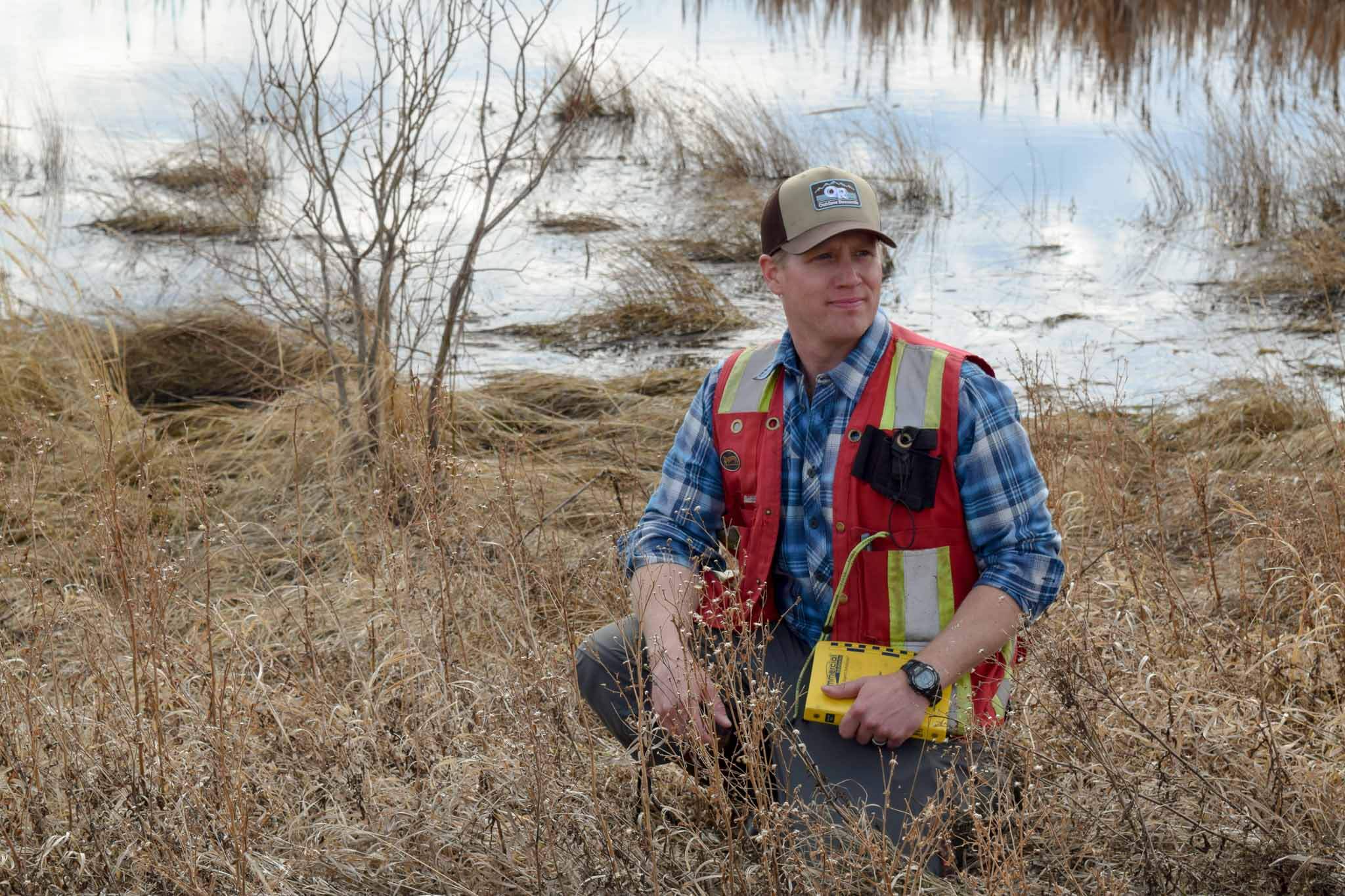AU researcher to study effectiveness of oilsands reclamation efforts
An Athabasca University researcher has been awarded a $1.8 million contract to study the effectiveness of reclamation efforts in Alberta’s oilsands.
Dr. Scott Ketcheson, the Canada Research Chair in Hydrological Sustainability, is the principal investigator on a project for Suncor Energy to test, develop, and optimize a landscape reclamation technique focusing on pit lakes.
“The oilsands industry wants to be able to do a good job at reclaiming and reconstructing boreal ecosystems after resource extraction,” he said. “In order to do so, they are partnering with academic institutions and different researchers who can gather information and evaluate how these systems are functioning, then provide that information back to the industry, which will help inform and optimize future landscape designs.”
Many of the current reclaimed landscapes are terrestrial—with uplands, wetlands, and the like—but the idea with pit lakes is to create a fully functioning boreal lake ecosystem as a reclamation option.
His co-principal investigator on this project, Dr. Richard Petrone, is a professor at the University of Waterloo in Ontario, so both Athabasca University and the University of Waterloo will benefit from this contract.

Opportunities at AU
More than half the contract amount, over $950,000, will be allocated to salaries and training of highly qualified personnel over five years: one doctoral student, three masters students, one post-doctoral fellow and one full-time research technician.
There is currently no relevant Master of Science program in earth sciences within Athabasca University to house masters or doctoral students for this project, at least until the proposed Master of Science in Earth System Science is approved and developed. This means there will be more opportunities for AU undergraduates, with the project set to employ five of them as summer field assistants.
“The PhD and masters students will be University of Waterloo students I will co-supervise, and the undergrads, post-doc and technician will all come on as AU students and employees,” Ketcheson said. “I can hire a full-time research tech to work with me and my group for five years, which is very exciting.”
He said being able to hire someone full time for five years will have a huge impact on his own work by helping to create continuity over the five-year period, which will ultimately help to advance the research and potentially allow him to publish more.
“As part of our long-term mission of the Athabasca River Basin Research Institute, this project will support the efforts to fulfill the collective mission of ensuring long-term sustainability of the land, water and the communities living there.”
– Dr. Lisa Carter, Dean, Faculty of Science and Technology
Ketcheson’s successful bid for this project, and the research that it will support, is in line with Athabasca University’s strategic research direction that emphasizes research to optimize social, economic and environmental impact on the communities the university serves.
“We are so delighted for this opportunity for Scott and his team to advance understanding of northern Alberta stewardship and finding solutions that provide long-term management of the land and its waters,” said Dr. Lisa Carter, Dean of the Faculty of Science & Technology. “As part of our long-term mission of the Athabasca River Basin Research Institute, this project will support the efforts to fulfill the collective mission of ensuring long-term sustainability of the land, water and the communities living there.”
Dr. Pamela Hawranik, interim Associate Vice President of Research, was likewise optimistic about what this research means for not only the institution, but for the province as a whole.
“This multidisciplinary project exemplifies a research partnership between a researcher and the private sector that is examining a real-life problem that has meaningful implications for industry and the health of Albertans,” she said. “It aligns with the Alberta Research and Innovation Framework and illustrates the leadership role AU can play in advancing innovative strategies to create a cleaner environment.”
For more information about the innovative work being done in the Athabasca River Basin, visit the Athabasca River Basin Research Institute.
You can also read more about the programs and courses offered through the Faculty of Science and Technology.